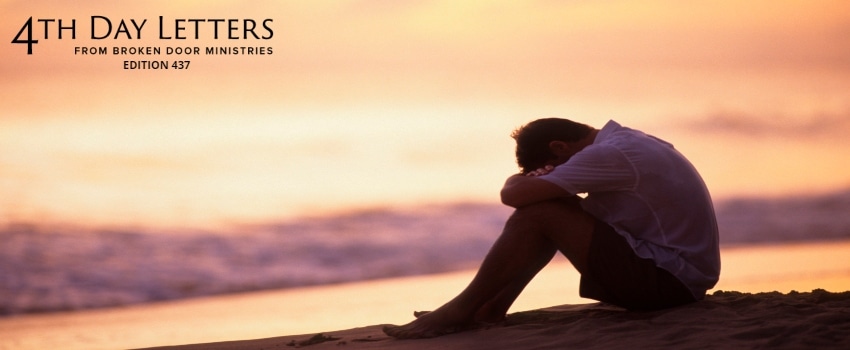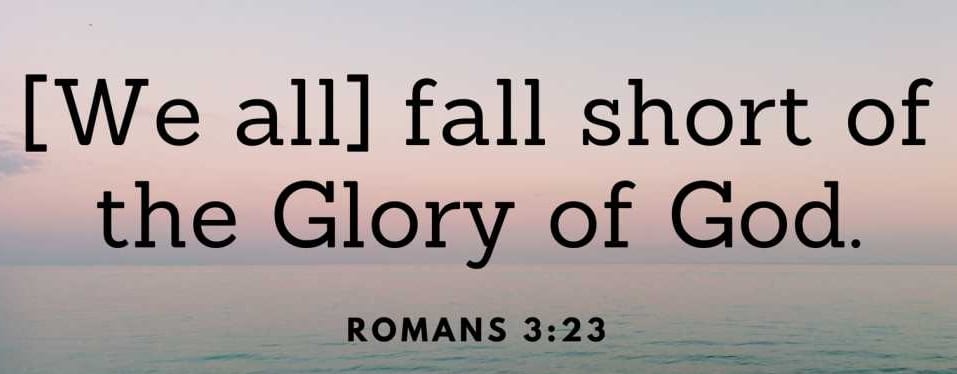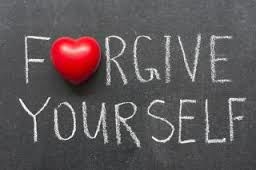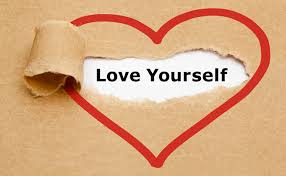
Is Self Forgiveness Possible?
Podcast: Play in new window | Download
Subscribe: Apple Podcasts | RSS
Have you or someone you know ever uttered these words, “I know God has forgiven me, for the sins of my past, but I can’t forgive myself?” This leads to an interesting discussion. Is self-forgiveness even possible? Is it Biblical? Is it vital to good health? Is it essential to a state of spiritual well-being? Please read more….
 Some pastors and theologians call the idea of self-forgiveness a Christian heresy, while others say it is a vital part of Christian life. Which is it? Each of these theories have some element of truth. Understanding this may come down to semantics. Words matter. For just a moment, I would like to divert your attention from the term self-forgiveness and draw your focus to the concept of self-acceptance.
Some pastors and theologians call the idea of self-forgiveness a Christian heresy, while others say it is a vital part of Christian life. Which is it? Each of these theories have some element of truth. Understanding this may come down to semantics. Words matter. For just a moment, I would like to divert your attention from the term self-forgiveness and draw your focus to the concept of self-acceptance.
In order for a Christian to experience a sense or feeling of self-forgiveness and inner peace, it is essential to accept the following important truths.
- I am a sinner. There are things I have done in my past that I cannot change.
- I am not capable of forgiving my own sin. God alone, can forgive my sins.
- I cannot earn God’s forgiveness. His mercy was freely given through His Son, Jesus Christ.
- I must learn to love myself as God loves me.
 Carl Jung, the famous Swiss psychiatrist said the following: “That I feed the hungry, that I forgive an insult, that I love my enemy in the name of Christ — all these are undoubtedly great virtues. What I do unto the least of my brethren, that I do unto Christ. But what if I should discover that the least among them all, the poorest of all the beggars, the most impudent of all the offenders, the very enemy himself — that these are within me, and that I myself stand in need of the alms of my own kindness — that I myself am the enemy who must be loved — what then?”
Carl Jung, the famous Swiss psychiatrist said the following: “That I feed the hungry, that I forgive an insult, that I love my enemy in the name of Christ — all these are undoubtedly great virtues. What I do unto the least of my brethren, that I do unto Christ. But what if I should discover that the least among them all, the poorest of all the beggars, the most impudent of all the offenders, the very enemy himself — that these are within me, and that I myself stand in need of the alms of my own kindness — that I myself am the enemy who must be loved — what then?”
Self-condemnation is dangerous and toxic guilt can weigh us down and blind us to our true inner self that God knows and loves. It is clear we need forgiveness, but forgiveness of sin is God’s alone to give. What we must do is open our heart an accept it. When we can fully embrace God’s mercy in our heart, we can finally learn to be merciful towards ourselves.
 1 John 1:8 states, “If we say, “We are without sin,” we deceive ourselves, and the truth is not in us.” Romans 3:23 reminds us, “all have sinned and are deprived of the glory of God.” Without a doubt all of us have sins in our past. We cannot go back now and relive the event. We likely cannot forget the event, and it doesn’t do us any good trying to pretend it didn’t happen. Even the sins that God has forgiven can leave lasting scars. So, what can we do?
1 John 1:8 states, “If we say, “We are without sin,” we deceive ourselves, and the truth is not in us.” Romans 3:23 reminds us, “all have sinned and are deprived of the glory of God.” Without a doubt all of us have sins in our past. We cannot go back now and relive the event. We likely cannot forget the event, and it doesn’t do us any good trying to pretend it didn’t happen. Even the sins that God has forgiven can leave lasting scars. So, what can we do?
We must realize that our sins do not define us. Forgiveness comes at a cost and Jesus has paid the price. Romans 12:17 tells us, “Do not repay anyone evil for evil.” This applies to us as well. We must stop repaying the evil that we did in the past with evil thoughts about ourselves today. We are not worthless because of our sins, and we don’t become worthy because of any good deed we do. Our worth comes from God. In 1 John 3:1 it is written, “See what love the Father has bestowed on us that we may be called the children of God.”
If we don’t fully accept God’s mercy and forgiveness in our heart, we will be forced to live with self-hatred and regret. If we don’t embrace God’s forgiveness, we will get caught up in an endless cycle of shame, guilt, and sadness. Jesus was the atoning sacrifice for our sins, (1 John 2:2). There is no condemnation for those who are in Christ (Romans 8:1-2). When we confess our sins, God forgives our sins and cleanses us from every wrongdoing (1 John 1:9). Finally Hebrews 10:17 gives us this assurance, “Their sins and their evildoing I will remember no more.”
 Maybe we should replace the term self-forgiveness with the term self-acceptance or self-love. Can I accept my short comings and still love myself as God loves me?
Maybe we should replace the term self-forgiveness with the term self-acceptance or self-love. Can I accept my short comings and still love myself as God loves me?
I wrote this article with the hope that this message might help someone who is struggling with self-forgiveness find peace. Hopefully they can see that God alone can forgive our sins. If we desire an inner peace, we must learn to see ourselves as God sees us. Everything God made is good (Genesis 1:31). No self-help book can bring you this peace. Trusting in God and in His mercy is of paramount importance for anyone seeking to find true and lasting inner peace.
Heavenly Father, please grant pardon and lasting peace to everyone who seeks with a contrite heart your forgiveness in the name of your Son Jesus Christ, amen!
 As always, I love to read your comments below as well as hear from you personally by clicking here.
As always, I love to read your comments below as well as hear from you personally by clicking here.
- What Is The Church’s Role In Society? - July 21, 2024
- The Thorn Remained - July 14, 2024
- The Confounding Nature Of Freedom - July 7, 2024

Brian,
Powerful! Loved the quote by Carl Jung. Jesus must be the center of all even in the depths of our being.
God bless,
Michael T.
Michael
Thank you for your post. God bless!
Brian
A friend sent this to me. It was very well done. Do you have any thoughts of can Christians forgive away sins of others? John 20:23 is specifically what I am asking. Thanks for your time .
Nicholas
Thanks for posting and welcome to 4th Day Letters. You asked a very good question. Jesus was speaking directly to His apostles when He said “Whose sins you forgive are forgiven them, and whose sins you retain are retained.” So clearly Jesus gave authority to His apostles to forgive sins. Does this authority to forgive the sins of others extend to all Christians. I tend to think not. For full disclosure I am a life-long Catholic, although I try my best to write with a focus on ecumenicism. I know that Catholics have always held that the authority handed on from Jesus to His apostles has been handed down through the years through the laying of hands during ordination to the parish priests. They are forgiving those sins not on their own but through the power invested in them through apostolic succession. I fully understand that other non-Catholics do not believe in a priest’s power to forgive sins. As to everyone who, like me, is just a lay none ordained Christian, I don’t believe we have the power to forgive another persons sins. We do, however, have the power to share with everyone the good news that Jesus Christ is ready and willing to forgive their sins if they just repent and have a contrite heart. The key for all of us is to accept the forgiveness that Jesus freely offers and to love ourselves as He loves us, despite our flaws. I hope this helps.
Brian
Thank you for this message, it is much needed the accusser beats us up enough without our own help. I enjoy all your messages very much. God Bless you and family for a very gifted ministry.
Frank
Thanks for writing. I like the way you said it, he doesn’t need our help.
God bless
Brian
Another great letter! Hope you and Mary are doing well. Look forward to talking to you,once the Virus scare is over. Stay healthy and safe. Jim
Thanks Jim! Stay safe.